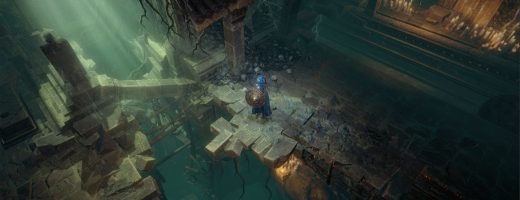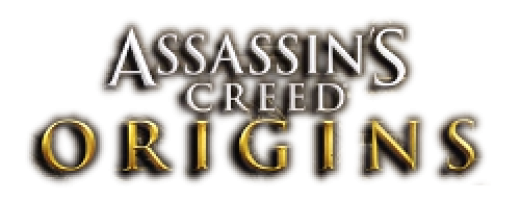Sunless Skies Interview
Sunless Skies is a dark, imaginative journey through space on worryingly fragile trains. In addition to strange cities and the esoteric manners of those who dwell in the High Wilderness, it explores the boundaries between humanity and the unknown. It’s one out of ten: the PAX 10.
Each year a panel of industry experts selects their ten favorite indie games for special consideration at PAX West. Thanks to this honor, our very own Zach Welhouse was able to speak with Hannah Flynn, communications director for Failbetter Games. This interview occurred before the release of the Hoarder Update.
Zach Welhouse (RPGamer): I couldn’t help overhearing you say with the Hoarder update, the main Sunless Skies experience will be complete. However, you said the “main” experience. Does that leave the skies open for any other experiences?
Hannah Flynn: Yeah, so Hoarder is the update coming in September, in which there will be equippable engines for the first time, allowing faster travel because people have been quite certain about being able to travel just a little faster; a new transit relay you can build; and a new officer. We’ve been updating Sunless Skies for free since January. We’ve added quite a lot of content and made many technical updates, so we feel quite satisfied now with the game as it stands as a product and an experience.
ZW: Increasing travel speed and adding a horn (which was included in the Horn Update) were two of the most commonly requested features from the community. Is there anything that a lot of people have been asking for that just isn’t going to happen because it doesn’t fit the creative vision?
HF: I don’t think so. The community knows the world really well, so the ideas they have are quite close to what we’d like to do anyway. There are things they expected to see in the skies that are not there, that we may yet… That’s as close as I’m going to get to a secret. (Laughs.)
We’re keen to do some paid DLC as well, and there will be one or two more free updates that we have planned. Going into next year there’s all sorts of secret stuff I can’t tell you.
ZW: That was going to be my next question.
HF: I’m good at secrets. (Laughs.) I’m in charge of whether or not I can tell people about them. Secrecy is my job. So if I tell you something, I have to slap myself.
ZW: Instead of asking for more secrets, I’ll ask about the secret-keeping process. There are many secrets and mysteries in your game. Revelations are much less common. What’s it like working on stories where so much information is hidden and players may not ever get solid answers?
HF: In almost all cases if there’s a question people know exists, then we will have an answer. There’s very little where we don’t know exactly what the secret is. Part of the fun is the way that we write gives people a tiny piece here, a tiny piece there and letting people put things together — especially watching in real time on our Discord. The most difficult part is just managing all that because Fallen London will be ten years old in January. It’s just a tremendous amount of knowledge. The amount of mystery is something you have to manage. There always has to be something else to find out about.
In a way, Sunless Skies is a big revelation because it has all this interesting information about the Judgements, which are the stars and the big powers in the sky, which is very secretive in Fallen London. We always look for new places to take the story to keep it satisfying and preserve the sense there’s something undiscovered.
ZW: I can’t remember my source, but I’ve read that Sunless Skies is a potential future for Fallen London.
HF: Yes.
ZW: If one is the sort to create a comprehensive guide to Fallen London, is something that appears in Sunless Skies only considered canon for that branch of reality?
HF: I see what you mean. No, it’s canon. It’s canon, but what we didn’t want to do was invalidate all the experiences of the Fallen London players who had different destinies. When you have a universe of this size you always have to be certain if a change is good for the way you tell your story. The biggest and the most exciting, compelling change we could picture was going to the skies. That’s the story we wanted to tell.
ZW: That makes sense. So it’s OK if it’s a character’s destiny to cause the Liberation of the Night in Fallen London and that hasn’t happened in Sunless Skies.
HF: We’ve got a complicated universe. I think people are quite happy living with that contradiction. There’s a lot of contradictory nonsense in our universe. (Laughs.)
ZW: Shifting to something more mechanical for a moment, how do you or the Failbetter team envision the High Wilderness as it exists in a 3D space?
HF: That’s a good question. It’s a difficult thing to answer because it’s not my role — but the creation of the High Wilderness in the game was influenced so much by the fact that Sunless Sea was at sea. We learned how to make that kind of game, so the fact that you’re on a single plane in space that you traversing in the cardinal directions and not up and down, but you can see much further, comes from Sunless Sea as a starting point.
I don’t know if we’d started from scratch with a High Wilderness game if we’d change the way we did it, but I, personally, love watching that parallax spool away. That sense of vertigo is big part of the atmosphere of the game.
ZW: It’s the sense you’re only scratching the surface and there’s not enough time in your life to explore all the mysteries.
HF: Yeah.
ZW: Both Sunless Sea and Sunless Skies seem to have a lot of contributions from their Kickstarters. At the same time, both games have the inimitable Failbetter style. How do you balance strong characters submitted by the community with your own authorial voice?
HF: In the Kickstarter, we formulate the offer really carefully based on what we think we can reasonably do while keeping the lore and the shape of the game intact. For ship names, we asked the people for their profession, their greatest vice, things like that. It enabled us to use these ideas to craft a name. It wasn’t just “Please call it the S.S. John after my dad”. A few of them are like that, but there was a sense it required more interaction with the writers, which is what the Kickstarter backers liked. There, you give us a prompt and we give you back a name.
For the stuff that was more impactful, like the NPC characters, it’s really a collaborative process between the backers and the writers. The consistency of the whole game is kept fanatically tight because we have an editor on staff. The writing team was quite large on Sunless Skies. All the incoming work was critiqued by a bunch of people on the team. There’s a brain trust for keeping our universe intact. Having multiple voices, especially backers makes it a better game.
ZW: When it comes to characters like the Merchant Venturer, who was a backer character in Sunless Sea, was the same backer consulted about the character’s appearance in Sunless Skies?
HF: No, I think it was a surprise. (Laughs.) I think it was quite a nice surprise. You’d expect, right, it’s where the Merchant Venturer wanted to go.
There are some instances where a backer character returns and that’s sometimes because the person who backed Sunless Sea also backed Sunless Skies. It’s a funny one because our Kickstarter backers are often high-level backers of other campaigns. Characters who look a little bit like Sunless Sea can end up in other games, which makes marvelous connections we never expected.
ZW: They don’t necessarily intend the character to carry over.
HF: We don’t intend it particularly, but the backer — or backers who want a particular type of character — ends up in a couple of games. It’s quite fun — talking about the power of the consumer. (Laughs.)
ZW: Failbetter has worked with many voices over the years, both freelancers and creators of other indie games. Is there anyone either at PAX or in general that you would like to give a shout-out?
HF: Yeah! There’s so much good stuff it’s impossible. Games that I’ve really enjoyed are Cook, Serve, Delicious! 3 — which is fantastic, but nothing like what we do — and the game developer David Galindo is the sweetest man in games. He’s wearing little chefs’ whites to promote his game about cooking.
In terms of games that people who like our games might particularly enjoy, I have to recommend Spiritfarer by Thunder Lotus, which is a cozy management game about death. It’s extremely on top of what we’d like to do, and it’s been very popular. I’m so pleased for them.
Falcon Age is amazing, the Kitfox team are here with Boyfriend Dungeon and Dwarf Fortress with pictures. Meeting our international peers, since we don’t get to go too often, has been so cool and so fun.
Oh! I have to mention Heaven’s Vault by Inkle. It’s from the same team that did 80 Days, and it’s a wonderful, beautiful game about translation and discovering language, so we love it.
ZW: Are there any projects by people who are Failbetter-adjacent that you’d like to mention?
HF: One of our previous interns, Els White, is working on a game called Retrace, which is a queer, looping love story about death. There’s a lot of death in my recommendation. I love death. (Laughs.)
Els was an intern with us and is now developing this game. It’s really brilliant to see internships, incubations, and work experience in our office and now it’s starting to pay off when people release games off the back of it.
We would like to thank Hannah and Failbetter Games for this opportunity to learn more about the terrible secrets of the High Wilderness. September 12, 2019, marked the release of Sunless Skies‘ Hoarder Update, which includes new quests, a new officer, equippable engines, and a few technical tweaks. It’s dark in space, but the alternative can be so much worse.












Recent Comments